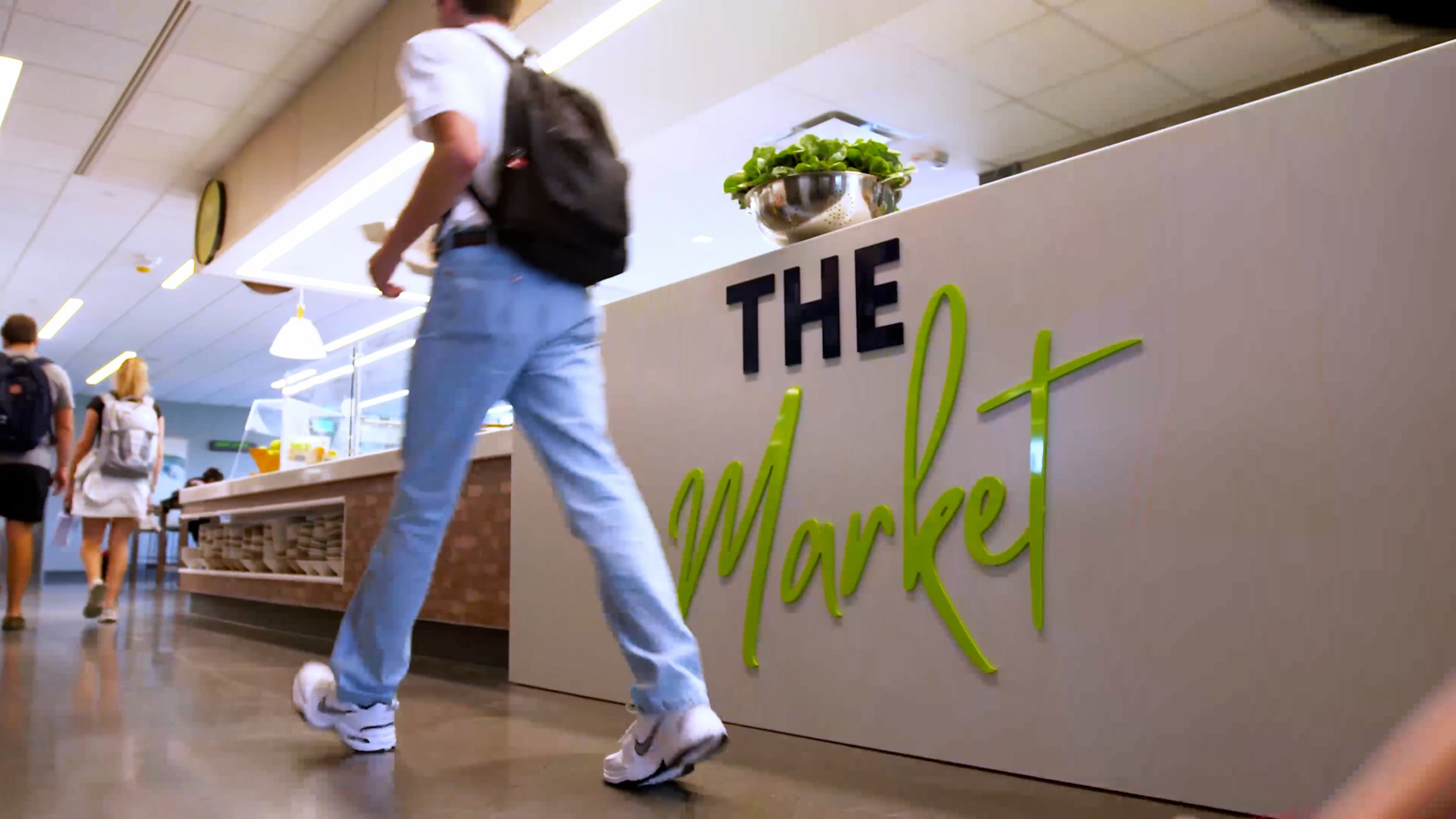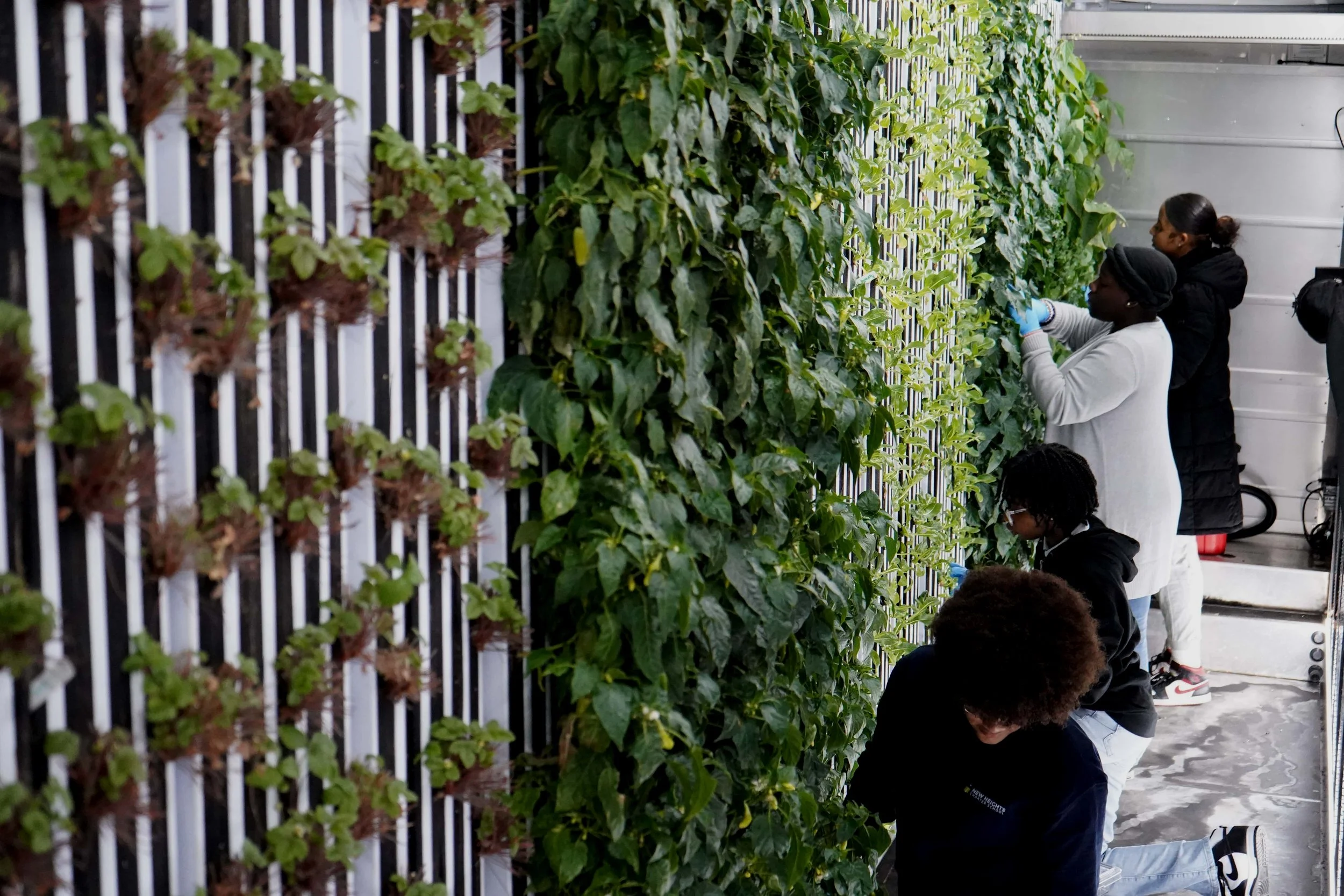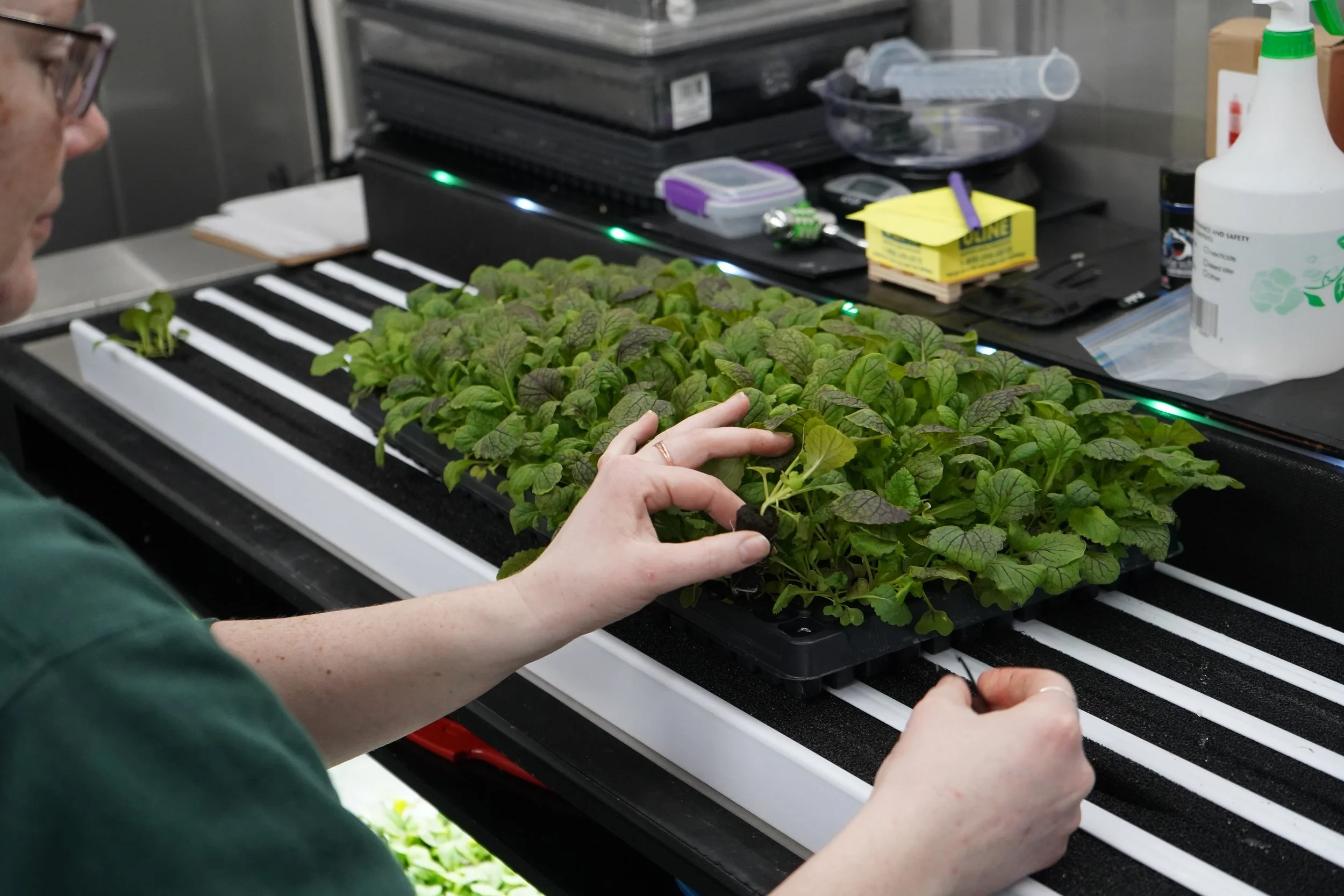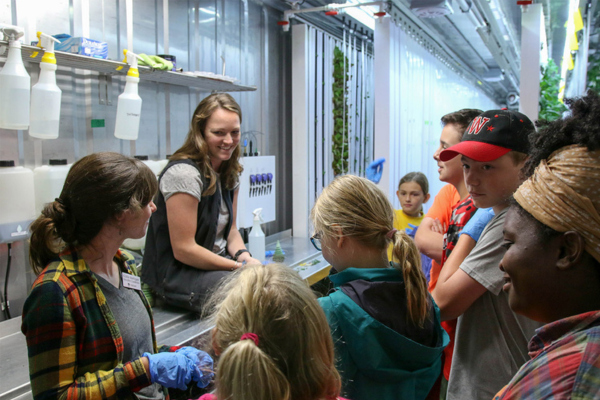
This compact and modular container farm can easily be installed on your campus to provide a year-round source of sustainable, high-quality, and nutritious food to elevate your dining operation.
Local produce, 365 days a year.
In just 320 square feet, the Greenery S grows 2–4 tons of produce annually, consistently producing harvest after harvest of greens to feed your hungry campus. Controlled environment agriculture technology means you can grow fresh produce all year, regardless of the weather.
Increased sustainability.
Farming onsite can help you minimize your dining hall food’s carbon footprint by eliminating long-distance shipping. As students increasingly seek to know the origins of their food, you’ll have an impressive (and very local) answer.
Optimal freshness and nutrition.
Serving produce to students mere minutes after harvest ensures the highest concentration of vitamins, minerals, and other essential nutrients. Plus, the extended shelf life of produce from the Greenery S means a reduction in food waste.
Learn more about the technology behind the Greenery S and how it can be implemented on your campus.
Download the Farm on Campus booklet.

Explore the Greenery™ S
on Campuses
Watch how Campus Dining at Auburn University serves student-grown greens.
10 reasons to have a container farm on campus.
Read the blog ➞
Learn more.
Visit our Education page ➞
See how a campus farm can double as a hands-on classroom for students.

Are you ready to get growing on your campus?
Discover how container farms are revolutionizing STEM education by providing hands-on learning in botany, physics, chemistry, and more. Prepare students for the future with innovative, sustainable farming systems.
Discover 16 compelling reasons to start container farming today! From becoming your own boss and contributing to your community, to growing fresh, local produce year-round, container farming offers personal, financial, and environmental benefits.
Freight Farms provides a straightforward, sustainable solution for growing produce. This guide offers a comprehensive look at the daily, weekly, and monthly tasks required to maintain a Freight Farm, with detailed steps to give prospective buyers a clear understanding of farm management.
Co2 plays a crucial role in plant growth by aiding photosynthesis, turning carbon dioxide into energy. By supplementing Co2, plants grow larger, retain more moisture, and become more efficient with water use. Learn when to use Co2 and how it can enhance your farm’s output.
As vertical farming grows, so do the possibilities for crops you can cultivate in your farm. From leafy greens to herbs and even experimental crops, Freight Farms offers a vast range of options. However, with so many choices, it’s essential to start with a solid crop plan.
Schools across the country are finding innovative ways to make their Freight Farms more functional and educational for students. By customizing the interior and exterior, schools can turn these farms into engaging spaces for hands-on learning, science projects, and sustainability initiatives.
Discover essential cleaning tips for your Freight Farm to boost plant health and maximize efficiency. Learn how daily maintenance routines can prevent pests, bacteria, and algae, keeping your vertical farm productive and thriving.
Whether looking to supply sustainable food, jumpstart modern agriculture curriculums, encourage student engagement, or simply grow the best greens around, universities around the country are relying on hydroponic container farms to create impactful farm to campus programs.
At Freight Farms, we work with campuses to integrate hydroponic produce into dining services and school curricula. Read on as we explore the ways a vertical farm can transform your campus.
We’re proud that so many schools use our hydroponic farming technology for their farm to school program. From California to Massachusetts, Freight Farms are put to work to achieve each of the pillars of farm to school: local food sourcing; student access to healthy food; and learning opportunities. In this blog, we explore each.
Freight Farms had the pleasure of exhibiting at three education-focused events, each providing a unique platform to connect with educational decision-makers. Our mission was to share the benefits of vertical farming, showcasing how a container farm can serve not just as a food source for the school and/or community, but as a dynamic classroom for various courses, research, and STEM opportunities.
One of the most promising advancements in campus dining is the incorporation of hydroponics. This method offers numerous benefits, including improved sustainability, enhanced food security, and fresher, more nutritious produce.
By integrating crops grown in container farms, universities can revolutionize their dining hall menus with fresh, local produce year-round.
One of the most promising advancements in campus dining is the incorporation of hydroponics. This method offers numerous benefits, including improved sustainability, enhanced food security, and fresher, more nutritious produce.
For new Freight Farmers, equipping themselves with the right tools is crucial. Here's a detailed guide to the top 10 essential items from farmhand® that every new Freight Farmer should consider.
By integrating Freight Farms into the K-12 curriculum, schools can address multiple educational and environmental objectives, fostering a hands-on learning experience that aligns with modern educational standards.
In this article, we examine the effectiveness of Freight Farms and traditional school gardens in K-12 settings and analyze their benefits, challenges, and impact on educational environments.
In this article, we explore how PTAs and Booster Clubs can successfully fund a Freight Farm, providing students with a cutting-edge learning tool that pushes the boundaries of traditional classroom education.
K-12 schools can effectively leverage community partnerships and corporate sponsorships to fund the purchase of a Freight Farm and enhance their educational offerings.






















Hydroponic container farms are transforming classrooms into dynamic environments for social emotional learning (SEL). Learn how these innovative tools cultivate essential life skills while growing fresh produce.